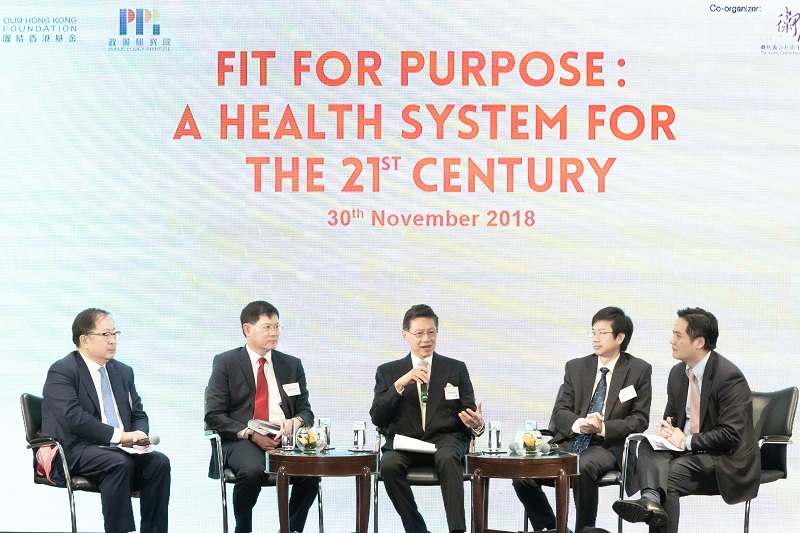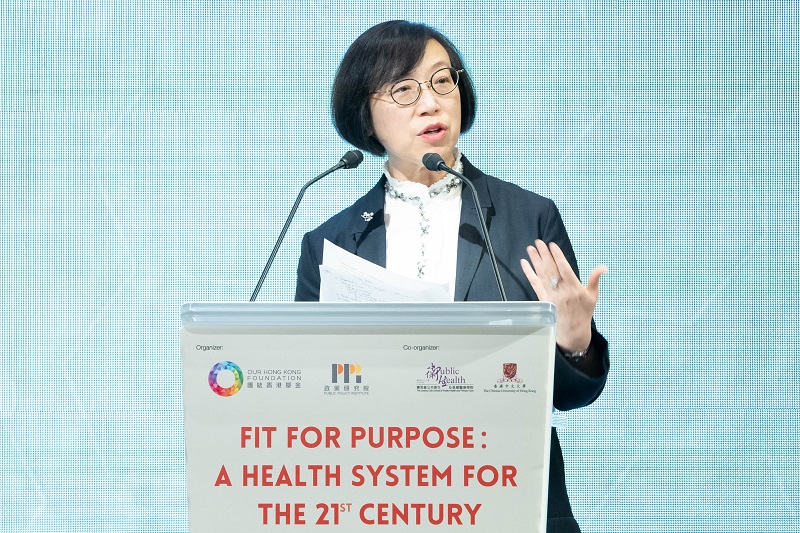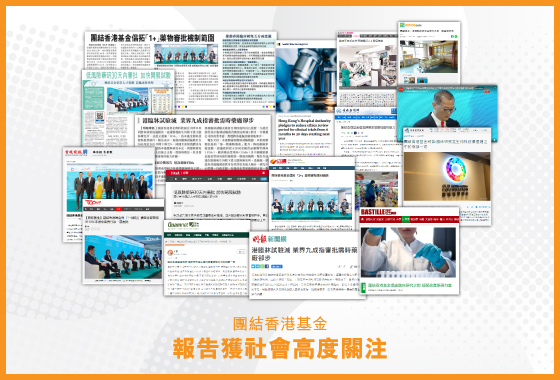“Fit for Purpose: A Health System for the 21st Century”
A Research Report on the Hong Kong Health System
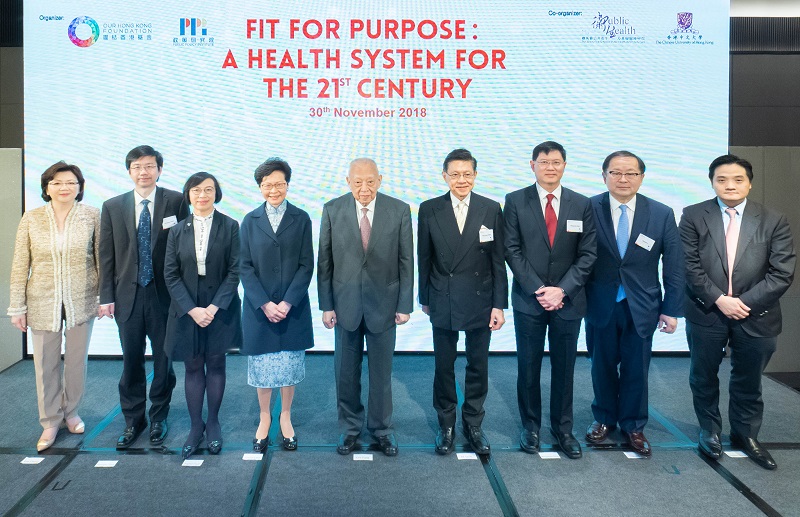
(30 November 2018, Hong Kong) Our Hong Kong Foundation (“OHKF”) has published a report on Hong Kong’s health system, titled "Fit for Purpose: A Health System for the 21st Century". The report points out that Hong Kong's health system is not fit to meet 21st century challenges. To tackle fundamental underlying problems, system-level changes are necessary to transform the system from its current emphasis on acute hospital-centric care to one that is integrated, person-centred and puts emphasis on primary care for all citizens of Hong Kong so that comprehensive and continuous care could be provided over their life course.
Health services are outdated and changes are urgently required
As people age, their likelihood of developing preventable chronic diseases (including hypertension and diabetes) increases. Hong Kong currently enjoys the longest life expectancy in the world, with an average of 87.7 years for women and 81.7 years for men. However, longer living populations and rising prevalence of preventable chronic conditions which are lifestyle-related and socially determined raise questions about how our health system can operate effectively, efficiently and sustainably. Over the years, Hong Kong's health system has focused on acute episodic hospital-centric care, a system which is not well-suited to provide adequate continuous care for patients with chronic disease, and one that is ill-equipped to address the socioeconomic norms associated with population ageing. These challenges are exacerbated by system fragmentation with patients falling through the cracks found between our primary and hospital services, and between health and social care. Adding to this burden is the divide between the public and private sectors, contributing to system segmentation. In the long term, if changes are not made in a timely manner, our health system will remain overburdened.
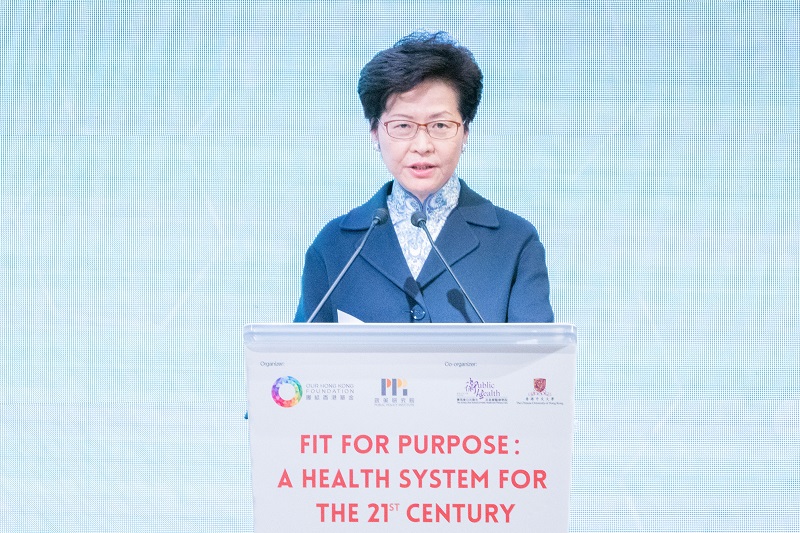
The symptoms of the current malaise are clearly visible. Nearly half of hospital admissions in the public sector could be prevented if appropriate outpatient care, including primary care and community care, is in place. Inadequate development of primary care is also exemplified by the relative shortage of community care resources (including related workforce, infrastructure, networks, etc.) outside of hospital settings and away from specialist services. Furthermore, unplanned hospital readmission within 30 days of discharge is 20%, pointing to inadequate support for post-discharge care by ambulatory and social care services in the community.
The outcome of an outdated health system manifests as overloaded public hospitals, extended waiting times for consultations, decreased accessibility to public-sector services and reduced efficiency of health service delivery. By and large, if the local health system remains status quo and fails to properly cater for the holistic needs of elderly citizens and patients with chronic disease, the system will continue to face challenges related to the mismatch between services currently offered and the health-related needs of our ageing population. There is an urgent need to transform Hong Kong’s health system and change must focus on reconfiguring how and what we deliver.
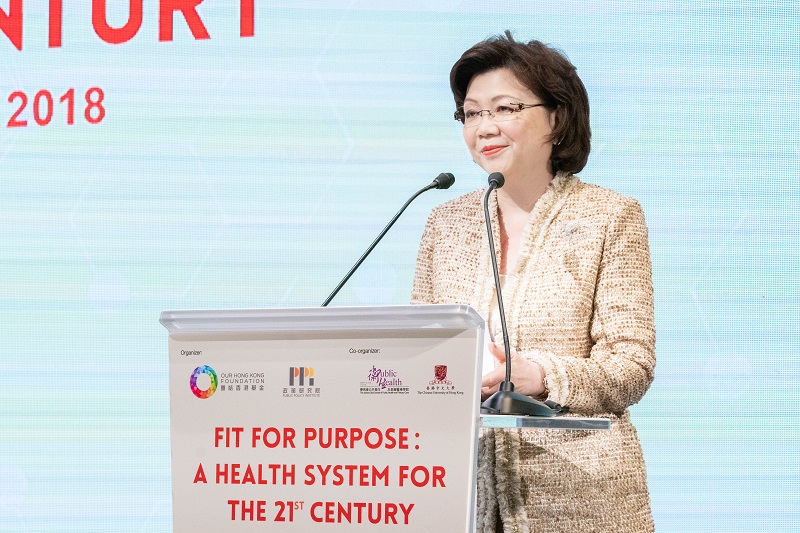
Recommendation 1: Move from disease-focused care to person-centred care
The report highlights the need for continuous efforts to move away from disease-focused towards person-centred care where holistic needs are addressed and patients are facilitated to take ownership of their own health. Empowering patients and enhancing the role of the community at all levels of health service delivery are key to achieving a person-centred system. The report recommends the Government to extend the existing "Patient Empowerment Programme" to cover a more comprehensive range of diseases, extending the scope of services to empower all patients and well-persons. The Government should also continue its efforts in developing a “Patient Portal” as part of the Electronic Health Record Sharing System (eHRSS) that enables patients to monitor their own health more closely.

Recommendation 2: District Health Centres as a multifunctional primary care hub embedded within a community network and promotion of coordinated care
The report outlines the importance of health service delivery reorganisation for the provision of more integrated and accessible care that enables patients to stay in the community. Building on the existing Kwai Tsing District Health Centre pilot model, the report puts forward a conceptual “hub and network model” for integrated health services to enhance preventive, curative and rehabilitative care and connect people to appropriate services. The model emphasises the importance to further foster the effective multidisciplinary collaboration between primary care doctors, allied health professionals, social sector and non-governmental organisation (NGO) workers, thereby forging continuity and seamless integration of care between medical and community services. Through continuous monitoring and evaluation, this conceptual model of integrated health services could be scaled-up and introduced to other districts to provide services meeting district-based needs.
At the same time, the Government should consider redefining the role of the private sector in the context of primary care provision, chronic disease management, and long-term care.
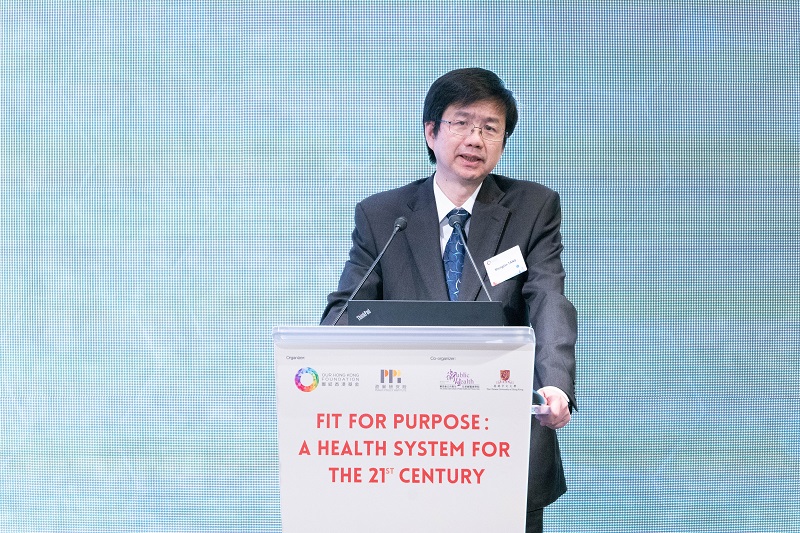
Recommendation 3: Accelerating the pace of primary care development through increasing relevant human resources and affirming the crucial role of family and primary care doctors
Everyone should ideally receive personalised care over their life course from their own primary care doctor. To this end, the report recommends enabling “patient affiliation with a primary care doctor”. At the same time, we must create, train and continually invest in the right workforce with the right skills for primary care delivery. This should include nurses, allied health professionals and family doctors as well as generalists trained to deal with multiple chronic illnesses and ageing-related complications.
Recommendation 4: Enhancing medical-social care integration
The report recommends the Government to conduct a comprehensive review on a wide range of healthcare mechanisms and foster stronger connections throughout the health system. This can be achieved through the design of care pathways, clinical protocols, care plans, referral and discharge protocols. To further promote integration between health and social care, the report recommends the Government to study shared funding mechanisms between health and social care authorities and examine the feasibility of pooled budget arrangements.

Recommendation 5: Establishment of a dedicated steering group on integrated care for health governance reform
Health system changes are complex and continuous. Governance levers and structures need to be in place to support and enable the development of new service models. The report recommends the Government to establish a cross-sector steering group to oversee the complex process of system-wide integration, led by a panel of experts, to help policymakers identify and develop strategies to implement changes. The Government should also consider earmarking research funds to commission relevant research. Furthermore, needs-based planning should be practised across the health system as a whole.
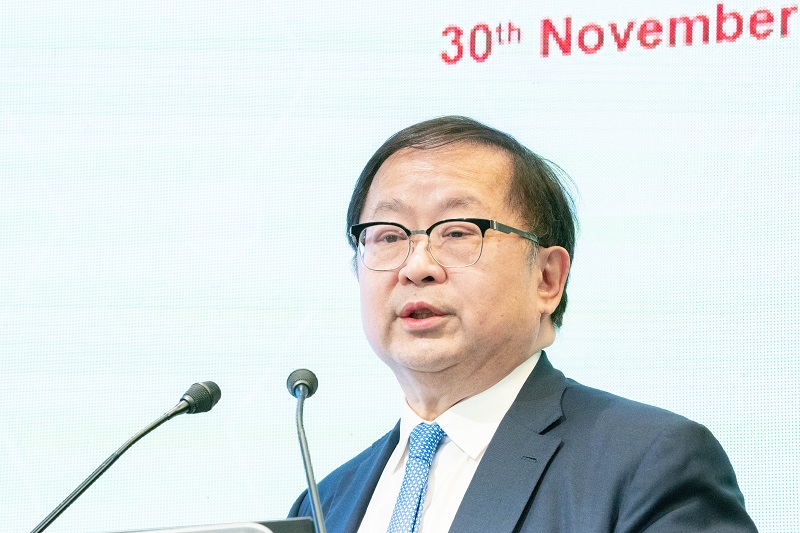
Make the health system “Fit for Purpose” and capable of meeting future needs
The above recommendations will facilitate the transformation of the health system based on a model of primary care-led integrated person-centred care, effectively addressing pressing challenges to Hong Kong’s health system, and enabling it to tackle 21st century challenges.
Prof E.K. Yeoh, Director of the Jockey Club School of Public Health and Primary Care at the Chinese University of Hong Kong, who led the research, stated: "A sound governance structure is the key to advancing healthcare reforms. Hong Kong urgently requires a health system transformation to address 21st century challenges. Currently misallocated resources must be properly allocated to match population needs. In particular, there is a need to invest more in the development of primary care and community care.”
Mr Stephen Wong, OHKF Deputy Executive Director and Head of Public Policy, emphasized: "There is a strong and pressing need for health system reforms. If we fail to undertake system reforms in a fundamental sense, any resource we invest into the system will only bring sub-standard outcomes. Therefore, we must place our target on integrating the linkages within the health system.”
Dr Pamela Tin, OHKF Researcher, noted: "We hope that the Government will adopt our recommendations to establish a sound governance structure that supports and promotes the development of primary care-led healthcare. Also, we hope that the Government will take the opportunity to develop a modern and innovative health system."
